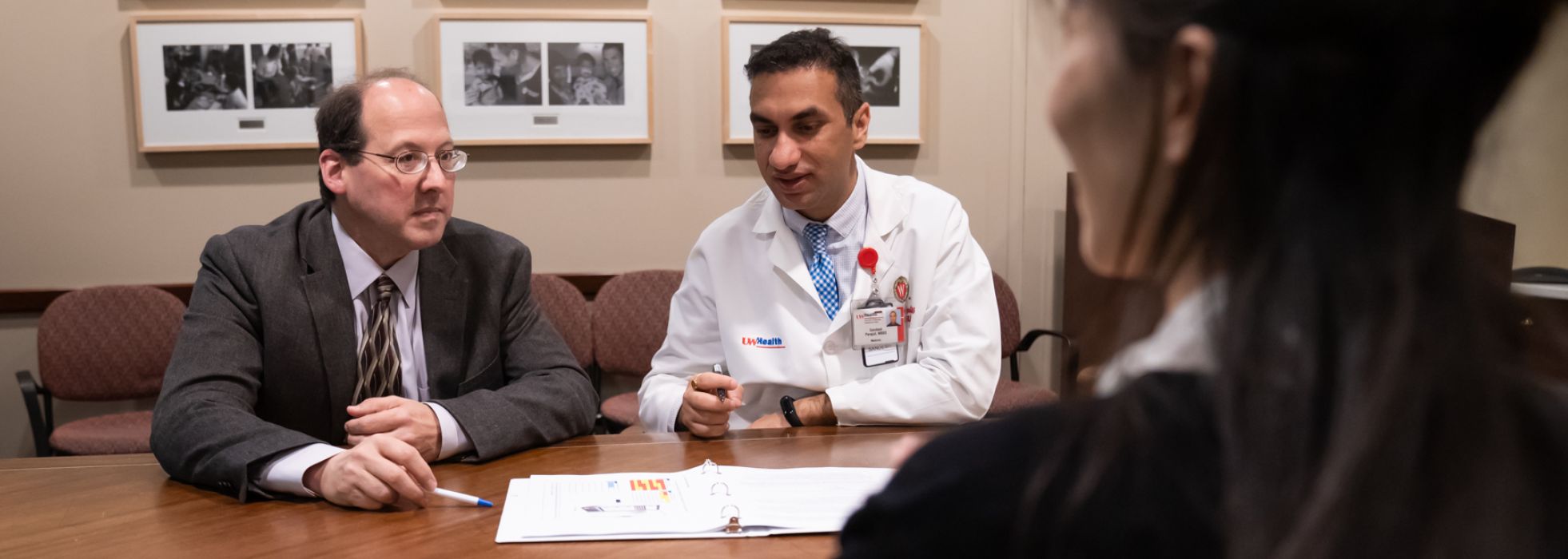Inquiry and Innovation
Research is an important component of the University of Wisconsin Nephrology fellowship.
With support from investigators in our division, department and campus, you’ll participate in innovative research and learn to develop your own projects.
Learn more about our department’s research environment.
Personalized Research Experience
Choose elective rotations in research areas that support individual career goals. Topics include:
- Clinical problems associated with dialysis, transplantation or progression of renal disease
- Clinical pharmacology in patients with renal disease
- Research in renal physiology or pathophysiology of renal disease
For questions about research opportunities, contact Brad Astor, PhD, MPH.
Learn more about mentoring in our fellowship.
Protected Time
You can use elective time for research (8 weeks in the first year, 12 weeks in the second year). In addition, you can request additional elective time by submitting a proposal of how the additional elective time will be used to further your career and/or research goals.
Opportunities for Collaboration
Whether you are interested in basic, translational, clinical or health services research, there’s a collaborator for you here.
- Division of Nephrology research
- Basic science transplantation research in the Department of Surgery: Brown Lab | Odorico Lab
Presentations, Publications and Awards
Fellows present research findings at these conferences:
- National Kidney Foundation (NKF) Spring Clinical Meeting
- American Society of Nephrology (ASN) Kidney Week
- American Society of Diagnostic and Interventional Nephrology (ASDIN) Annual Scientific Meeting
- American Transplant Congress (ATC)
Each fellow typically completes at least one national conference presentation and authors at least one publication during training.
Getting Funded
Mentor(s) work with you individually to identify grant funding opportunities.
The Department of Medicine also offers a pilot award program for residents and fellows, and our Office of Research Services provides biostatistical services, grant writing education and other career development opportunities for learners.
In addition, thanks to the generosity of Dr. Richard Rieselbach, there is a funding opportunity available to nephrology fellows each year. The Richard and Nina Rieselbach Nephrology Fellowship Award provides annual assistance to University of Wisconsin Nephrology Fellows to further their academic development. The fund can be used for research, travel or conference activities that support academic development of award recipients. Funding of up to $4,500 per year for one year will be awarded each academic year and may be split across multiple fellows.
